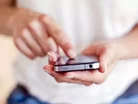Seven ways healthcare apps have transformed patient health

According to research done by Manhattan Research and published in "Taking the Pulse," 72 percent of physicians own a tablet device. To help these doctors take full advantage of their mobile devices, mobile developers have released thousands of health apps for both medical professionals and patients. Here are seven ways that apps have transformed health care.
Apps provide users with information that used to only be available in medical reference guides. Apps such as SymptomMD are available making it possible for users to enter in symptoms and get an idea of what they could possibly be experiencing before heading to the doctor. They can even help users decide whether they even need to see a doctor by determining if the symptoms are serious enough to need a doctor's exam.
For sufferers of food allergies, it can be difficult sometimes to know what food is okay to eat and what has ingredients that could cause problems—and not all food allergens are called out on the label. With the app MyFoodFacts, users can use the app to scan the barcodes of food products to instantly see if that food contains ingredients that could make them sick.
No longer do patients need to go to the doctor to know what's going on with their bodies. With apps like AliveECG, users can have an echocardiogram whenever and wherever. With the AliveCor heart monitor attachment and the free app, users can test for irregular heart rhythms. Having a portable heart monitor allows patients reassurance that everything is a-okay. Interestingly, the new Galaxy S5 from Samsung has a heart-rate monitor built-in to the phone, and is available from T-Mobile.
Using the capabilities that already exist in smartphones, doctors are able to more efficiently track patients' progress. For example, with the CellScope app and the Oto attachment, doctors can turn their phone into an otoscope that has the ability to record video during the ear exam. This is especially helpful when helping children because doctors are able to discuss the diagnosis with the parents while showing them the footage.
Instead of getting out a copy of "Physician's Desk Reference" every time doctors need to reference drug information, apps are now available that allow users to search by ailment or drug type. One of the most-used apps for doctors and patients is Epocrates, which can check for drug interactions.
The iHealth Wireless Pulse Oximeter uses a sensor on your finger to read blood oxygen saturation, pulse rate and Perfusion Index, so you can share the results with your doctor. It connects with your smartphone wirelessly through Bluetooth to the free iHealth SpO2 app. It could be used to see how your body handles high impact sports or recreational activities as well as helping to diagnose sleep apnea.
Isabel is another app that can be useful in the hands of health care professionals. It's an app that was developed by the parents of Isabel Maude, who almost died when she was three years old because of a misdiagnosis. Although it can't take the place of a doctor, it can be a great tool for doctors in diagnosing patients.
Seeing a doctor is not cheap. Depending on your co-pay, the cost can add up. There are apps out there can help save money. One such example is iTriage, which not only helps users figure out what their symptoms mean, but it will then direct users to the best place in their area for treatment. This free app is highly rated and can help users determine if they need to go to the ER or if urgent care is better. For situations that don't require immediate care, the app helps users find clinics in the area that specialize in the problem.
With so many options for mobile apps, it's no wonder that doctors are using mobile devices more and more in their offices and that many patients are finding health apps that make their lives easier.



